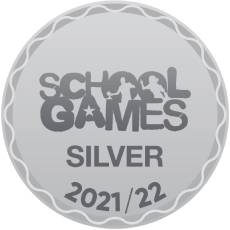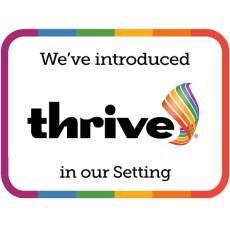English

At St. Mary's, English is highly regarded and is broken up into key components:
Phonics and Reading
Spelling
Writing (including Grammar).
Our Intent:
At St Mary’s we believe that immersing children in books is essential for developing children’s vocabulary and interest in reading. We aim to promote reading for pleasure as well as teaching children about the importance of reading and writing in all areas of life. From entry into Nursery children are exposed to a range of nursery rhymes, songs and environmental sounds that will support their reading development.
We encourage our children to speak clearly, to convey their ideas fluently and ask questions in a confident manner. We offer a range of speech and language programmes to support children throughout the school. Systematic phonics underpins our EYFS and Key Stage 1 English curriculum. By Key Stage 2 these firm foundations are transferred and utilised in our spelling curriculum. Our children are actively encouraged to read widely so that a love of reading is created and embraced. We aim to deliver an exciting, innovative English curriculum which exposes our children to rich, lively and thought provoking texts. This enables and empowers our children to think independently and communicate effectively in oral and written formats. We develop children’s writing skills so that they have the ability and stamina to write fluently, effectively and creatively for a wide range of purposes, encouraging them to express and exchange ideas whilst extending their range of vocabulary.
Phonics and Reading
Learning to read is the most crucial life skill a child can be taught within education. Everything else depends on it; so we put as much energy as we possibly can into making sure that every single child learns to read as quickly as possible.
We want your child to love reading – and to want to read for pleasure.
We start by teaching Read Write Inc. Phonics in Nursery and Reception classes. This means that children learn how to read the sounds in words and how those sounds can be written down. This is essential for reading, but it also helps children learn to spell accurately. We teach the children simple ways of remembering these sounds and letters. The children also practise reading and spelling, what we call ‘red words’ e.g. ‘once’, ‘have’, ‘said’.
The children begin to read books that match the phonics and ‘red words’ that they know, which helps them to become more fluent and confident readers. The childen's writing then builds upon these taught words into building sentences.
We have designated times each week where teachers read to the children so that they get the opportunity to know and listen to all types of texts, stories and poems.
For further information on Read Write Inc. Phonics scheme visit: https://www.ruthmiskin.com/parentsandcarers/
How long will it take to learn to read well?
By the end of Year 2, children should be able to read aloud books that are at the right level for their age. This means that they are a fluent reader and can comprehend efficiently what they are reading.
From Year 3 onwards, we concentrate more on developing an understanding of what they read (comprehension). The children take part in daily Guided Reading sessions.
Does it matter if a child misses a lesson or two?
It matters a great deal if children miss school. The way we teach children to read is very well organised; so even one missed lesson means that your child has not learnt something that they need to know to become a good reader.
How can you help your child at home?
If you can find time to read to your child as much as possible, it really helps him/her to learn about books and stories. They can also learn new words and what they mean. Show that you are interested in reading yourself and talk about reading as a family. Your child's reading record book is an important way of sharing responses to books that they have read. All children are allocated a Home Reading book based upon the Oxford Home Reading Scheme, Treetops and Project X.
For further information on reading in school, ideas how you can help you child at home and other useful information, please visit the Oxford Owl website: Click on this link.
Spelling
From Year 2 onwards, we use the Read Write Inc. Spelling Scheme. This follows immediately on from Read Write Inc Phonics.
Read Write Inc. Spelling for Years 2 to 6 has been specially created to meet the higher demands of the National Curriculum (2014).
- Lessons are just 15 minutes a day and are included in each year group's timetable
- Spelling rules are introduced by aliens from an exciting online spelling planet
- Children complete tasks to build upon teaching in a dedicated work book
- Independent study involves word building, word changing (using prefixes and suffixes), partner based dictations and other games to support independent learning
- During the course of each unit, children record spelling errors in their log books to ensure personalised learning and children are tested on these words (and others) in a weekly spelling test
- The scheme teaches the children all of the spelling rules that are a statutory requirement in National Curriculum English Appendix 1 and will prepare the children for the Key Stage 1 and 2 National Curriculum Spelling Tests.
- In addition to spelling rules, the children are also taught the National Curriculum Word Lists for Years 3 &4 and Years 5 &6.
For further information on the Read Write Inc. Spelling Scheme: Click on this link.
For further information on spelling in school, ideas how you can help you child at home and other useful information, please visit the Oxford Owl website: Click on this link.
Writing (including Grammar)
Learning to write is one of the most important things that a child at primary school will learn. Children use their writing in almost all other subjects of the curriculum. Good writing also gives children a voice to share their ideas with the world.
For a child, learning to write can be a tricky business, not least because good writing involves handwriting, spelling, grammar and punctuation not to mention what we want to write and who we are writing for.
At St Mary's, we follow the LPDS Talk Programme for writing across all year groups (Years 1–6). This structured approach provides exemplified units of work, ensuring consistency and high expectations in writing across the school. Each term, teachers take part in moderation pit stops to review progress, celebrate success, and identify next steps for every child.
Our English curriculum is built around carefully sequenced units of work that develop the full range of language and literacy skills. These units include a strong focus on:
-
Vocabulary development – through pre-teaching, exploration, and oral use.
-
Spoken language – including discussion, role play, and drama to support understanding and expression.
-
Reading – through book talk, comprehension activities, and exploring texts as both readers and writers.
-
Writing – with modelled, shared, and independent outcomes that reflect purposeful, high-quality composition.
Across all year groups, talk strategies are central to our approach. Pupils engage in:
-
Book talk to deepen comprehension and interpretation.
-
Reading as writers and writing as readers, creating strong links between the two disciplines.
-
Developing and applying writer’s toolkits to enhance creativity and technical skill.
-
Word and language games to foster enjoyment and curiosity in language.
-
Oral retelling and rehearsal (story/text/poetry mapping) to support structure and fluency before writing.
-
Oral and written presentations designed for specific purposes and audiences, building confidence and clarity in communication.
Through this integrated approach, children become confident speakers, thoughtful readers, and expressive writers, equipped with the skills and enthusiasm to communicate effectively across all areas of learning.
How it looks accross the school
Early Years Foundation Stage (EYFS)
In Nursery, children will have many opportunities to engage with fine motor activities and to begin mark making. Mark making will consist of making marks and patterns, drawing pictures and giving meaning to the marks they make. When the skills have been developed, and when children are ready, they will be encouarged to begin to form letters.
In Reception, children will start to learn how to form letters correctly following the RWI letter phrases. They will be encouraged to use their knowledge of phonics to write words in ways which match their spoken sounds. This operates in conjunction with the Read Write Inc. Phonics scheme. By the end of the year, they will be expected to write simple sentences which can be read by themselves and others.
In EYFS, we follow the Drawing Club approach, which uses drawing as a powerful tool to spark imagination, develop language, and build early writing and mathematical understanding. Rooted in stories, this approach encourages children to immerse themselves in imaginative worlds where they can invent, talk, draw, and write.
Each session focuses on the “3Ms”:
-
Making Conversation – developing rich vocabulary and expressive language through story discussions and imaginative dialogue;
-
Mark Making – expressing ideas through drawing and early writing, linking pictures with words;
-
Mathematics – exploring numbers, shapes, and patterns that naturally emerge within stories and drawings.
Through Drawing Club, children learn new vocabulary, create characters and settings, add “magic” elements to their drawings, and begin connecting their visual ideas with written and numerical representations. This playful, story-based approach nurtures creativity, confidence, and a love of learning across all areas of development.
Key Stage 1 (Years 1 & 2)
In Year 1, children will be taught to write sentences by saying out loud what they are going to write about, put several sentences together and re-read their writing to check it makes sense. They will also be expected to discuss what they have written and to read it aloud.
In Year 2, children learn to write for a range of purposes, including stories, information texts and poetry. Children are encouraged to plan what they are going to write and to read through their writing to make corrections and improvements.
Lower Key Stage 2 (Years 3 & 4)
In Years 3 and 4, children are encouraged to draft and write by talking about their writing. They will continue to learn how to organise paragraphs and, if they are writing non-fiction, to use headings. When they are writing stories, they will learn to use settings, characters and plots. Children in years 3 and 4 will be expected to use what they know about grammar in their writing and to read through what they have written, to find ways to edit and improve it.
Upper Key Stage 2 (Years 5 & 6)
In Years 5 and 6, children will continue to develop their skills in planning, drafting and reviewing what they have written. Children learn to identify the audience for and purpose of their writing. They will be expected to use grammar appropriately. In non-fiction writing, children will use headings, bullet points and other ways to organise their writing. They will be expected to describe settings, characters and to use dialogue in their stories.
For further information on how writing is taught in our school, please see St Mary's Grammar, Sentence and Punctuation Policy which is available to download.






















